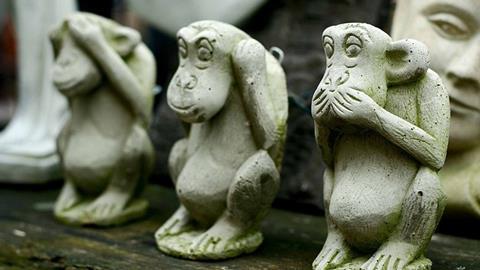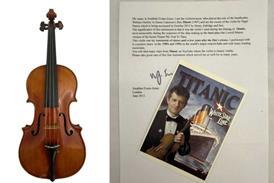If great players reach celestial heights with their playing, is it reasonable to expect them to be angels in real life? In an ideal world, yes, says Tully Potter

Recently I suggested that the unlikeable personality of a famous string player of the past may have contributed to the comparative shallowness of his interpretations. Feedback from readers divided neatly into those who agreed, and those who insisted how charming he was. It was a typical example of an old dilemma.
Should it matter, as we listen to a performance, whether we approve of the performer as a person? Whenever I raise this question I encounter people who are outraged that I should mention it at all. Their point of view is that we should divorce ourselves from such considerations when listening to music. If it is a good performance, it should not matter that the musician was, or is, an absolute so-and-so.
A lot of the time, they have a point. Is it of any consequence that Casals was fonder of money than his Gandhi-like pose implied? After all, he had known poverty as a child. Should we care that another cellist was beastly to his pupils? Maybe not, although it may explain an occasional vacuousness in his interpretations. Does it matter that a quartet leader reputedly bullied his more sensitive colleagues so much that a number of resignations, several nervous breakdowns and a suicide resulted? It does not show in the group’s recordings.
Perhaps I am an incurable romantic, but I do think there is an ethical dimension to music and I do expect high moral standards from musicians, especially those who like to present themselves as gurus or philosophers. It becomes critical when we confront the question of those who remained in Germany during the Third Reich and took the jobs of exiled or imprisoned Jewish artists. My research suggests that a significant number of them, like other Germans or fellow-travelling outsiders, had a good idea of what was really happening.
I listen guiltily, if at all, to recordings made in Germany during the war. I also pick and choose among those made in Russia in the Stalinist era. I realise there is no exact equivalence between the two regimes, but I hate to think of the way such composers as Shostakovich, Gubaidulina, Miaskovsky and Prokofiev were treated. In some cases, artists have been unfairly maligned. I have had people tell me that a great Soviet violinist was a colonel in the KGB, a ridiculous assertion, as I discovered when I looked into it. And much has been made of a particular Czech string quartet being more honourable (or less subservient) to the Communist regime, than a rival group. In truth, the ‘good’ quartet actually did very well out of the Czech government, while the only evidence against the ‘bad’ quartet is that one member was a sincere Communist. But in other instances, the facts seem clear. I cannot bring myself to listen to Tikhon Khrennikov’s music, however good it may be.
It would be lovely if all great musicians were lofty, perfect beings, but we have to accept that they are as fallible as the rest of us. Going through the upbringing of a prodigy and losing most of your childhood to the ambitions of pushy parents would make many of us hard-bitten and cynical. Music lovers, myself included, invest a lot of ourselves in artists we admire. It upsets us to discover that they denounced their pupils to the Gestapo or the Stasi, or to be told that they beat their wives or cuckolded their husbands. In an ideal world it might not affect us, but it inevitably damages our inner picture of them.
Perhaps I am being fanciful in hearing a lack of emotional depth in the interpretations of some artists. But that is the way I experience their music making. I am far more interested in those who move me through their music than in those who get every note in the right place but sound heartless. Others are free to disagree.
Above my desk is an old brass depiction of the three wise monkeys. It strikes me that the monkey who ‘hears no evil’ cannot hear music either. So perhaps we cannot have music without some evil. We must all confront it in our own way.
This article was originally published in the November 2016 issue of The Strad. Click here to login or subscribe. Alternatively, download on desktop computer or through The Strad App.



































No comments yet